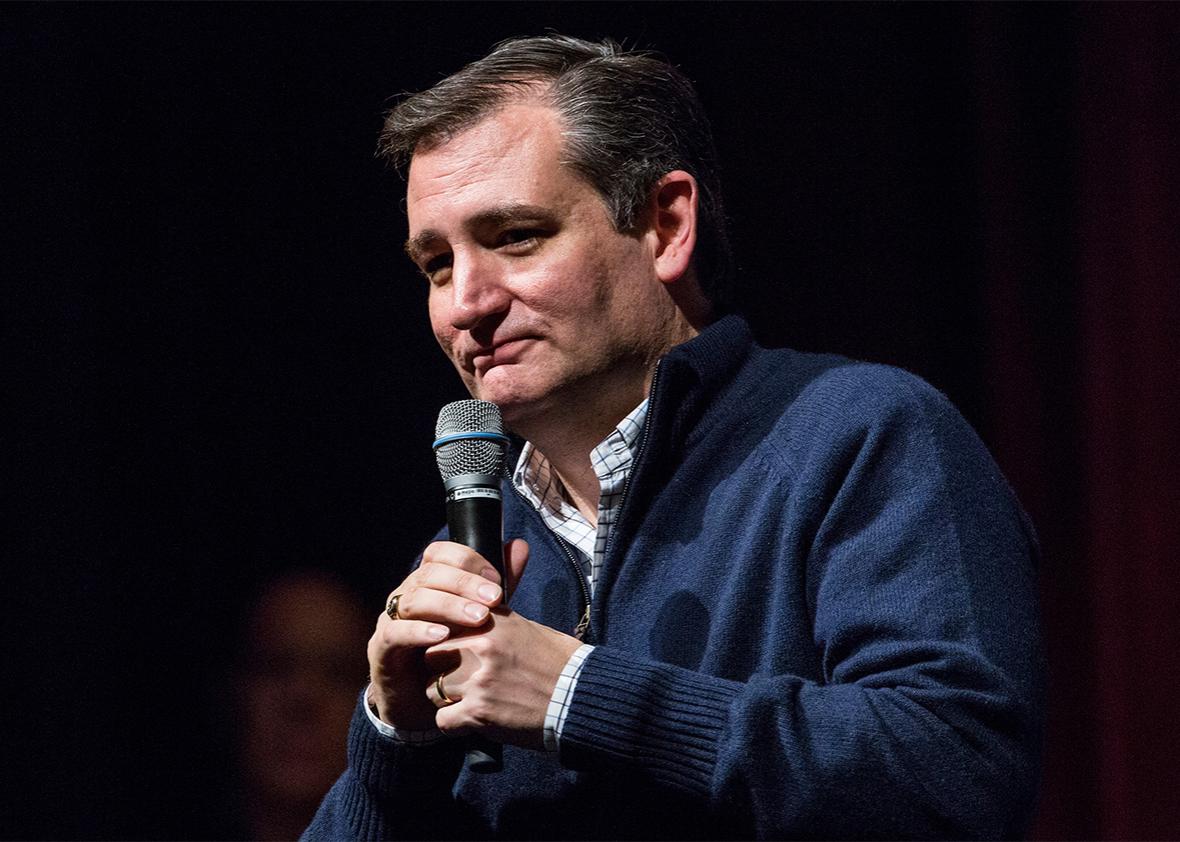Sen. Ted Cruz delivered a come-from-behind victory in the Iowa caucuses on Monday, surviving withering assaults from Donald Trump, the ethanol lobby, the state’s popular six-term Republican governor, and the entire Republican establishment in Washington. Unlike previous late-surge winners of the Iowa caucuses, like Rick Santorum or Mike Huckabee, Cruz leaves the first voting state with all the money and resources he needs to compete for the full calendar. And he’s a better politician than those guys, too.
But now what?
There’s been an eerie sense of silence around Cruz since his Iowa victory. Much of that is because the stories of the two runners-up in Iowa, Trump and Sen. Marco Rubio, are far more interesting.
Everyone wanted to see how Trump, the winningest winner in the history of winning, would react to an official 0-1 career record in voting contests. (The answer: at first humbly, and then more Trumpily.) More important than his own reaction, though, will be that of his supporters. Will the “once Trump loses Iowa and shatters his ‘winner’ image, his support will collapse” theory bear out? There’s evidence that that’s beginning nationally, but the scant post-Iowa polling of New Hampshire so far suggests that his massive lead there is far from crumbling. The beating Trump already seems to be taking nationally, though, makes a New Hampshire victory critical.
Meanwhile, Rubio’s third-place Iowa “victory” primes him to place highly in New Hampshire and even more highly should Chris Christie, John Kasich, and Jeb Bush exit the race next week. The party establishment and its beloved money have already begun sidling up to Rubio—he now tops Bush in key party endorsements—and after New Hampshire and South Carolina, the support is going to reach a deluge. Rubio has real momentum in both New Hampshire and national polling, and he benefits from the winner-take-all backend of the primary schedule. It would, however, help for Rubio to actually win a state before March.
Which brings us back to the reigning champ, Cruz, who’s got a fat third-place finish staring at him in New Hampshire unless Bush and Christie’s vicious (and coordinated!) assault on Rubio can drag the Florida senator down. Cruz’s strategy in New Hampshire is to consolidate the state’s modest conservative vote, but he doesn’t seem to be doing so at the pace that Rubio and Trump are consolidating everyone else.
“I would advise Cruz to skip New Hampshire and go to South Carolina,” former Mitt Romney strategist Stuart Stevens told the Daily Beast in a story titled “Ted Cruz Will Get Crushed in New Hampshire.” “I believe you shouldn’t compete anywhere where it’s not a favorable battlefield to win.” Cruz is competing in New Hampshire for the time being, though his team is setting expectations accordingly. “I would be thrilled with second place in New Hampshire,” Cruz spokesman Rick Tyler said. “And third would certainly be acceptable.”
What awaits Cruz in South Carolina, though? The state is something of an unknown at the moment, as pollsters haven’t surveyed it since Jan. 23. (Psst, pollsters: Poll South Carolina Republicans, please?) What those surveys had been showing was another dominating advantage for Trump, an average lead of 16 points, according to RealClearPolitics. If Trump is able to translate his New Hampshire lead into a victory and restore his irritatingly effective swagger, he would head into South Carolina the favorite.
Barring some surprise, such as masses of Republican voters weirdly and suddenly deciding that they love Jeb Bush, this is a three-person race cut fairly closely between the three participants. In Public Policy Polling’s national poll released Thursday, a hypothetical three-person race breaks down as 34 percent for Rubio, 33 percent for Trump, and 25 percent for Cruz.
Cruz needs to rack up his delegates through the Southern primaries if he wants to compete with Rubio and Trump, who have greater crossover appeal for the more moderate, winner-take-all states at the end of the contest. If he follows a New Hampshire third with a South Carolina loss, he may not have the momentum he needs to carry through.
Cruz should not be underestimated, though. He is a shrewd, Nixonian tactician who probably has had his path to the 2016 Republican presidential nomination mapped out on a county-by-county basis since he was 12 years old. But the trend lines are not working in his favor. Except for that immovable blob of 25 to 30 percent of Republicans that Trump lays claim to, we’re seeing “the old rules” begin to assert themselves: the acceptably electable figure approved by a broad cross-section of the party, Rubio, is rising as votes are cast and party figures align behind him. If that reversion to the norm continues apace, then Cruz begins roughly around where he started: a factional candidate representing the hard right who will have a difficult time amassing a majority of delegates.
See more of Slate’s GOP primary coverage.
